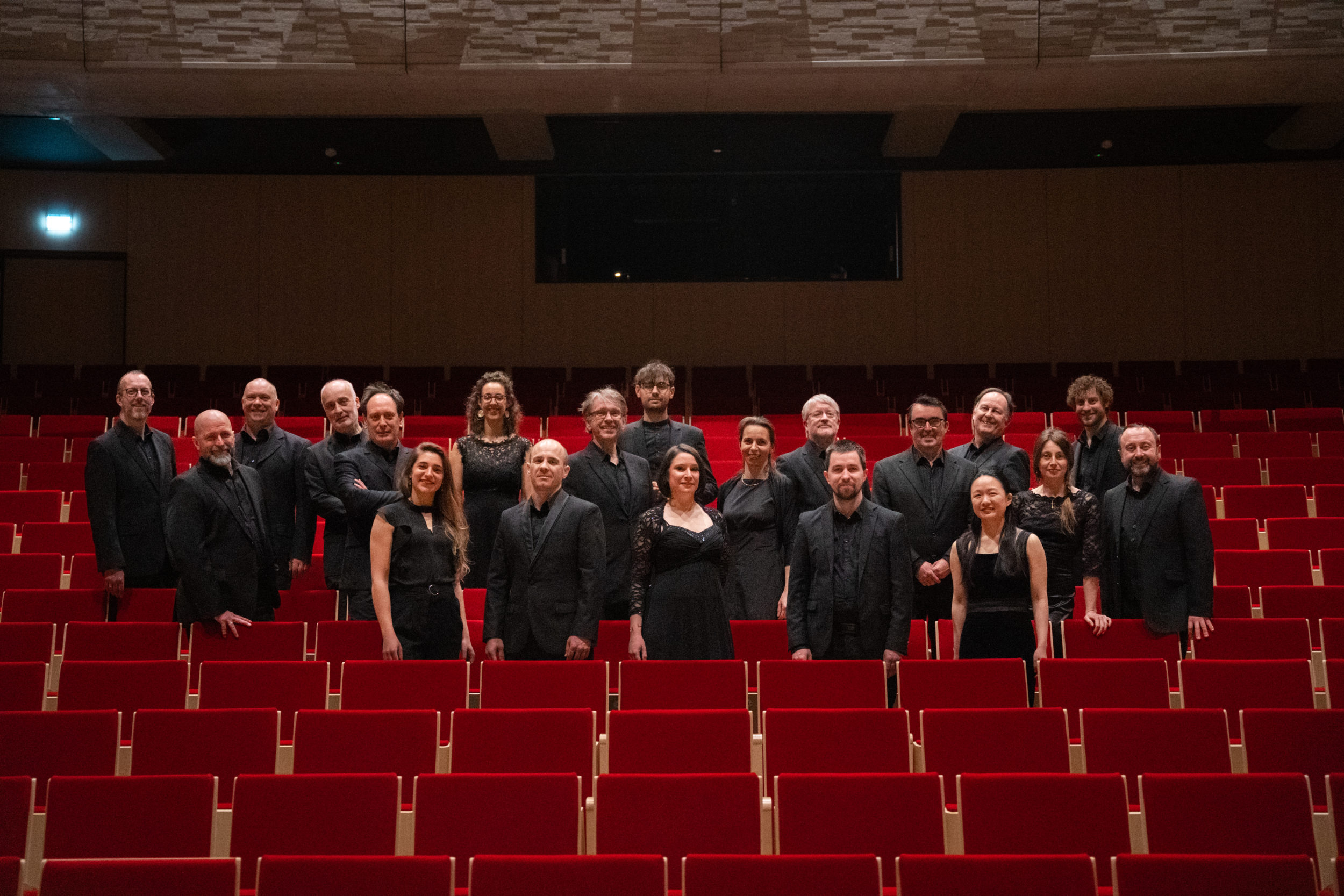
Choeur de Chambre de Namur
choir
Since its founding in 1987, the Namur Chamber Choir has been committed to promoting the musical heritage of its region of origin (Lassus, Arcadelt, Rogier, Du Mont, Gossec, Grétry…) while also embracing major works from the choral repertoire.
A regular guest at Europe’s most prestigious festivals, the choir has worked under the baton of conductors such as Christophe Rousset, René Jacobs, Alexis Kossenko, Julien Chauvin, Reinoud Van Mechelen, Gergely Madaras, among others.
Its discography includes numerous recordings highly praised by critics (nominations for the Victoires de la Musique Classique, Choc by Classica, Diapason d’Or, Joker from Crescendo, 4F from Télérama, Editor’s Choice from Gramophone, ICMA, Prix Caecilia from the Belgian press…). The Namur Chamber Choir was also awarded the Grand Prix from the Académie Charles Cros in 2003, the Prize of the Académie Française in 2006, and the Octave de la Musique in 2007 and 2012 in the categories “Classical Music” and “Show of the Year.”
In 2010, the choir’s artistic direction was entrusted to Argentine conductor Leonardo García-Alarcón. In 2016, it took part in its first staged production at the Paris Opera (Eliogabalo by Cavalli). In 2017, it appeared in Dido and Aeneas by Purcell at the Opéra Royal de Wallonie in Liège, under the direction of Guy Van Waas.
The 2017–2018 season marked the choir’s 30th anniversary. L’Orfeo by Monteverdi, in 2017, was the first highlight of these celebrations, performed across Europe and South America. In 2018, productions of Grands Motets by Lully, Passio del Venerdi Santo by Veneziano, masses and motets by Jacques Arcadelt, and the oratorio Samson by Handel were key events, with several TV broadcasts and CD recordings, all conducted by Leonardo García Alarcón.
In 2019, the Namur Chamber Choir added to its repertoire Saul by Handel (Namur and Beaune), Isis by Lully (Beaune, Paris, and Versailles), and Les Indes Galantes by Rameau (Paris Opera). It also premiered a new work by Belgian composer Michel Fourgon, Goethes-Fragmente.
From 2020 to 2025, the Namur Chamber Choir continues its journey through Handel’s major choral works (The Messiahand Jephtha with Christophe Rousset, Semele, Solomon, Theodora with Leonardo García Alarcón), explores a wide-ranging repertoire with its artistic director (St Matthew Passion, St John Passion in collaboration with choreographer Sasha Waltz, secular cantatas by Bach, Vespro and Orfeo by Monteverdi, La Jérusalem délivrée by Philippe d’Orléans, etc.) and expands its scope to include operetta (La Vie Parisienne by Jacques Offenbach at Théâtre des Champs-Élysées). It also continues special collaborations with Christophe Rousset and Les Talens Lyriques (Thésée, Atys, and Proserpine by Lully, St Matthew Passion by Bach), Julien Chauvin and Le Concert de la Loge (Requiem by Mozart, The Creation by Haydn), Reinoud Van Mechelen and A Nocte Temporis (Acis and Galatea by Élisabeth Jacquet de La Guerre, St John Passion by Bach, Pygmalion by Rameau), and launches new ones with Alexis Kossenko and Les Ambassadeurs (Zoroastre by Rameau, Carnaval du Parnasse by Mondonville, Mass in C minor by Mozart, Die Erste Walpurgisnacht by Mendelssohn, Dardanus by Rameau), as well as with René Jacobs and B’Rock Orchestra (Carmen by Bizet).
The choir’s repertoire spans a vast range, from the Middle Ages to contemporary music.
The Namur Chamber Choir is supported by the Fédération Wallonie-Bruxelles (Music and Dance Department) and the City of Namur.

